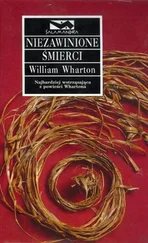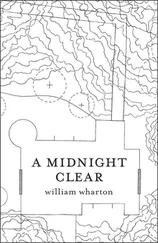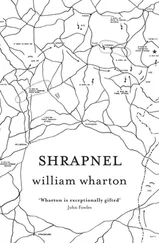I watch the pulse rate and it’s up to 87 down to 83, up to 92. I never knew the pulse varied so much. Could it be because of her heart?
I’m staring at the screen and more or less inside myself, when I hear her voice.
‘You did come, after all. I must really be sick.’
This’s classic Mom. First, recrimination, doubt I’d come; second, self-pity. I lean down and kiss her on the turned cheek.
‘Oh, you’re not so sick, Mom. I came for something else anyway.’
What a stupid thing to say! She might be half dead, but nobody could fool my mother that easily. A person who’s suspicious even about truth is hard to fool.
‘Don’t kid me, Jacky.’
She closes her eyes, then slowly begins her dramatized version of the heart attack. She ought to write soap operas. She can make almost anything interesting and gives herself terrific starring roles.
‘Daddy didn’t know what to do … I’m staying alive by willpower, telling Daddy it’s only indigestion. I’m praying to Saint Jude, patron saint of hopeless cases, when Joan comes in the nick of time and saves my life.’
She grudgingly gives this to Joan, then takes it back by saying the McCarthys, her side of the family, are always good in emergencies, while the Tremonts crack up. Thank God, Joan has good McCarthy blood.
Now there’s the scenario about what the doctors have told her. If they talked to Mother as much as she says, she couldn’t find time to sleep and nothing else in the hospital would get done.
And they’re all so impressed with her strength; she has the willpower of somebody half her age. Mother probably considers this an insult; nobody half her age has her willpower.
But she does admit she’s scared.
Next we start the planning, stage-managing.
‘Don’t say anything to Daddy about a heart attack! Just tell him it’s something with my “insides”.
‘He’ll understand that, Jacky, because I had the hysterectomy. You tell him it’s only something went wrong with my “insides”.’
She likes that idea.
‘And whatever you do, Jacky, don’t mention cancer, you know he’s scared to death of cancer.’
I don’t know what cancer has to do with the whole thing but I nod. I’ll talk to Joan and we’ll figure how we can handle Dad. There’s no way to keep it from him that Mother’s had a heart attack. Having a heart attack is not like having a hysterectomy. When you’ve had a heart attack, even if you survive you’re a coronary patient for life.
But there’s no sense saying these things to Mom now. I stay on for a while and watch. She drifts in and out, sometimes thrashing in her sleep. Once, she pulls off the monitor and three nurses come dashing in. Boy, are they ready for action!
Mother is an extremely active person, even in her sleep; she’s nervous and moves quickly. The nurse tells me it’s the fourth time she’s torn off the monitor. This time they do everything but nail it to her arm; gluing and taping from elbow to wrist. The IV tube is another whole problem.
When I leave, I’m surprised I don’t feel any tendency to cry. Mostly, I feel discouraged and peculiarly restless. Seeing her down that way is like looking at an old, familiar tree that’s been struck by lightning and is stretched across the path.
I go back determined to put on the brightest face possible. In our family my role is the joker, the comedian, the clown.
I know what’s expected; you get a feeling for a role like this. I park Dad’s car up the street, then walk to the house. Usually we park this car on the driveway or in the patio. Dad meets me at the door.
‘Where’s the car, Johnny?’
‘Well, Dad, I visited the hospital. When I got there, Mother was all packed, ready to go. The doctor said she ought to take a vacation and rest up, so she’s on her way to Palm Springs. I gave her the car and took a bus back.’
Now, this is cruel. Dad’s believing me. He’s glad Mother’s well, but he’s crushed she’s going to Palm Springs without him. Joan pushes past me and looks down the street.
‘Jack, you’re impossible! The car’s right down there, Dad. You have a real screwball for a son.’
It gets us past the hard point anyway. I have some time to pull myself together.
The TV’s on and I settle onto the gold chair, Mom’s chair. They’re watching a game between the Angels and Oakland. Oakland’s winning, of course. Dad realizes I’ve been to the hospital and he’s trying not to make a big thing of it.
‘How’s she look to you, Johnny? Does she seem all right?’
Then, with hardly a pause.
‘When’s she coming home?’
‘She’s fine, Dad, but she’ll be in the hospital for a while. She said to say hello and sends you a big kiss.’
He doesn’t ask what’s the matter with her. I don’t think he wants to know. I look over at Joan on the couch and she puts her finger to her lips.
We watch silently. Oakland’s ahead by five.
Joan stands quietly, points to the first back bedroom and leaves. I think it’s called a back bedroom because it’s behind the living room, kitchen and bath; she means the side bedroom.
There’s another bedroom further back; the real back bedroom. This house is built in an L, the bottom part facing the street. This is the living-and-dining room. The long part of the L extends on the left toward the rear, with a patio on the right. Along this are the kitchen and bathroom, back to back; the middle, or first ‘back’ bedroom, then the real back bedroom at the end of the hall. Actually, there’s another bedroom in the garden; this is sometimes called the back bedroom, too. My folks’ house has three back bedrooms, no other kind.
Joan’s waiting for me. With men on first and third, one out for the Angels, I leave as if I’m going to the bathroom; Dad and Mario don’t look up. I go in and close the bedroom door quietly. Joan’s stretched out on the bed, I sit on the floor.
As children, Joan and I developed our own world, fighting what I now call the poverty mind. This poverty mind constantly suspects anything out of the ordinary, anything not known or accepted; also if it isn’t practical, it isn’t good.
Now Joan has five children. She’s a natural mother, one of the incredible women who truly play with their children. And I don’t mean only when they’re babies; she plays with them all the time. She has a twenty-four-year-old son, Yale graduate cum laude, and she still plays with him. You might find them out in the yard playing marbles or shooting a BB gun.
Mother calls Joan the ‘simp’ when she does this. ‘Look at the simp playing on the floor with her grown kids.’
‘Simp’ in Mom’s lexicon is short for simpleton, I think. I’ve never asked her. Whenever anyone does anything she doesn’t agree with, they’re automatically classified as ‘simp’. She snorts through her nose when she says it. Joan is a ‘simp’ (snort) because she plays with her children; ‘They’ll never have any respect for her. Honest to God, they think she’s only another kid.’
Joan and I still play together. Here I’m fifty-two and she’s in her late forties, but when we get together, it’s playtime. Our play is based on deep confidence. What’s hide-and-seek if you peek? Can you relax and have fun on a seesaw with someone you don’t trust?
‘How’d Mom look to you, Jack?’
She laughs when I tell her Mother’s first line. I admit she didn’t look so hot.
‘The doctor says we just have to wait and see what damage was done.’
She pauses.
‘I’m worried about Dad. I could move him out to our place but he’s better off here where he can putter around his garden and greenhouse.’
I nod.
‘How long can you stay?’
Читать дальше












